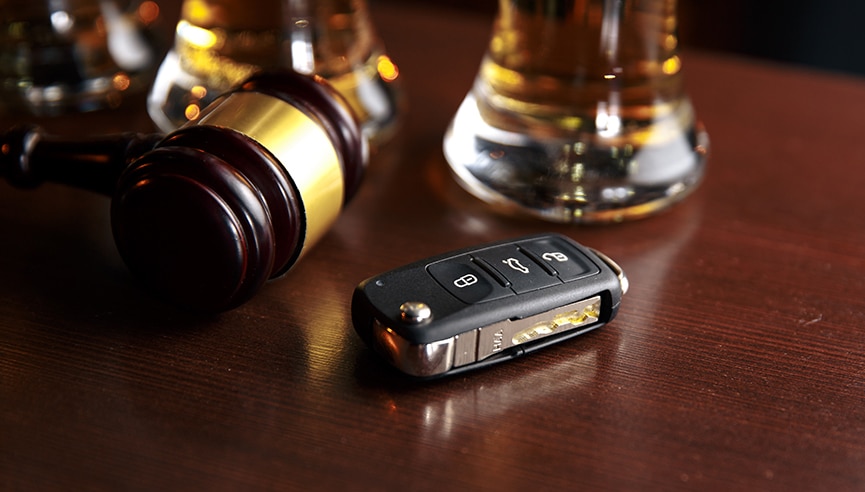
Lebanon DUI Lawyers Answer Your Frequently Asked Questions
Representing clients in Nashville, Mt. Juliet, Cookeville, and throughout Tennessee
You have questions about DUIs. We provide answers.
DUIs and DWIs
What is the difference between DUI (driving under the influence) and DWI (driving while intoxicated)?
These terms are often used interchangeably.
Do I need an attorney?
Yes. A DUI is a serious offense in Tennessee, especially as the state continues to apply more stringent consequences. Therefore, you need a professional to protect your rights and minimize the penalties as much as possible. Retaining an attorney at Lowery, Lowery & Cherry is a good decision and can make the difference between keeping or losing your driver's license.
How soon after my arrest should I hire a DUI attorney?
As soon as possible. Your attorney at Lowery, Lowery & Cherry can make sure that there is a comprehensive investigation and all relevant evidence essential to your defense is preserved.
Do I have to perform a field sobriety test if a police officer stops me while driving?
Law enforcement can ask you to undergo a field sobriety test. However, you do not have to consent to a field sobriety test. There is no legal penalty for refusing a field sobriety test. For instance, your mere refusal will not cause you to lose your driver's license.
Can I choose between a blood, breath or urine test when arrested for drunk driving in Tennessee?
No. Tennessee law permits a police officer to decide which test(s) to administer when charging a person with DUI. By obtaining a driver's license, you have implicitly consented to taking a chemical test (i.e., blood, breath, or urine test) to determine your blood alcohol level. This is called the Tennessee Implied Consent Law. If a court finds that you are in violation of the implied consent law, your license will be suspended for one to five years depending upon the specific circumstances of your case.
Nonetheless, before an officer may request a chemical test, he/she must have reasonable cause to believe you were driving under the influence. Be wary about submitting to a Breathalyzer® test. Registering a blood alcohol level of .08 (the legal limit) or higher on a Breathalyzer® is a damaging fact that allows the State to have a better case against you.
Can I be arrested for DUI even if the vehicle was not moving?
Yes. You can be arrested for a DUI even while sitting in a parked car. In Tennessee, the State needs to prove that a defendant was in "physical control" of the vehicle. It is enough that you became impaired and subsequently put yourself in a position to operate the vehicle.
Do I have the right to talk to an attorney before taking a chemical test?
No. Tennessee motorists do not have the right to speak to a lawyer before deciding whether or not to submit to a chemical test. You may not be permitted to consult a friend or relative either. Further, if you delay in giving your consent to a chemical test, this may be deemed as a refusal, and you may be charged with an implied consent violation.
What happens to my license if I am an out-of-state driver convicted of a DUI in Tennessee?
Tennessee has no jurisdiction over licenses issued by other states. But, your home state will likely learn of your DUI conviction, which can lead to a license revocation in your home state.
What are the penalties for a DUI conviction?
Penalties for a DUI conviction depend on a number of factors. Generally, Tennessee imposes one or more of the following penalties: jail time, monetary fines, community service, license suspension or revocation.
How long will a DUI stay on my record?
In most cases, a DUI will always remain on your record. DUI convictions are not generally eligible for expungement. Please contact us for a more definitive explanation concerning DUI convictions and Tennessee expungements.
Can I still drive after a DUI arrest?
Depends. With a valid Tennessee driver's license, you may continue to drive while your DUI case is pending unless ordered otherwise by a Tennessee judge. Typically, your license is only revoked if you are convicted of a DUI or if you violate Tennessee's Implied Consent law.
What is an ignition interlock device?
Those convicted of a DUI in Tennessee may be ordered to install an ignition interlock device in their vehicles in order to have their driving privileges partially or fully restored. An ignition interlock device is a unit that is installed in your car, requiring the driver to blow into it in order to start the ignition. If alcohol is detected, the vehicle will not start. You will be responsible for the cost of installing the device and having it serviced and inspected regularly.
Contact experienced criminal defense and DUI defense lawyers in Lebanon, TN
Contact the experienced attorneys of Lowery, Lowery & Cherry today for a free and confidential consultation regarding the circumstances surrounding DUI arrests.
